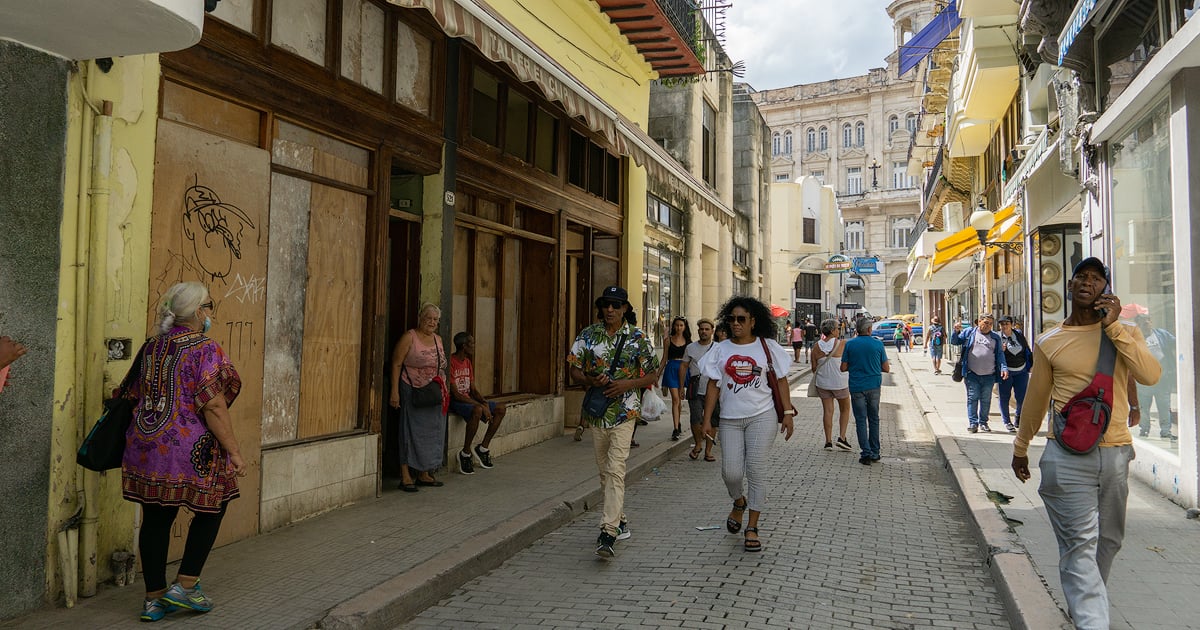
Two Cuban children roam the streets of Havana selling candy to help their family.
Facebook user Yenney Caballero, a social causes activist, shared the story of these young siblings who, despite their tender age, are already working to support their grandmother, with whom they live.
"I met them in front of a restaurant selling candy. I was really moved by them because they are very polite and respectful when offering what they sell," Yenney recounted.
After school, these children make bracelets and sell candies on the streets, not to beg for alms, but to earn with effort what they need to support themselves and their grandmother.
The oldest brother, with remarkable maturity and strength, revealed his dream to Yenney. They want to save up to buy a bicycle that will enable them to go to school, which is far from their home.
Her younger brother often feels tired from walking long distances and would greatly benefit from having a bicycle. "Sometimes he cries because he's exhausted, especially since they stand late selling their goods," the Cuban added.
On the streets of Cuba, it is becoming increasingly common to see children selling candies, tamales, avocados, or peanuts to help their families, a reflection of the growing economic crisis.
These children, often accompanied by adults, face long hours at traffic lights or busy corners. This practice, normalized by many, exposes the children to various risks.
In Cuba, the laws prohibit child labor, but economic necessity forces families to prioritize survival. This phenomenon highlights the urgent need for policies that protect children and ensure better living conditions and education.
Yenney invited her followers to join an initiative to gift a bicycle as a gesture of support. She also plans to make her older brother's upcoming birthday, which is this Saturday, a special day. "I want him to have a nice, different time," she expressed with enthusiasm.
The publication has sparked a call for solidarity, emphasizing the importance of upholding values of respect and hard work amid the economic challenges faced by the Cuban population.
Those who wish to support this cause can contact Yenney through private messages on Facebook.
Frequently Asked Questions About Child Labor in Cuba
Why do children work on the streets of Cuba?
Although Cuban laws prohibit child labor, the deep economic crisis forces many families to prioritize survival, leading them to allow their children to work to contribute to the household income. Economic necessity is the main factor driving minors to seek employment.
What types of jobs do Cuban children do?
Cuban children engage in activities such as selling candies, tamales, avocados, and other products on the streets. Some even rummage through garbage or beg for money. These jobs are done in conditions that can be dangerous and expose minors to various risks.
How does child labor affect the education of children in Cuba?
Child labor disrupts children's education, as many miss classes or arrive late due to their work obligations. This phenomenon has even been acknowledged by state-run media, which highlights that children skip school to work and support their families.
What actions are citizens taking to help working children?
Many Cuban citizens and activists have organized initiatives to help these children, such as donating bicycles, food, or clothing. These actions aim to relieve the burdens on the minors and offer them a better quality of life. The solidarity of the community is crucial in supporting these children.
What role does the Cuban government play in the issue of child labor?
Although the Cuban government prohibits child labor, the lack of economic support for vulnerable families and the ongoing economic crisis contribute to the persistence of this issue. The regime has been criticized for evading its responsibilities and blaming families for the situation.
Filed under: